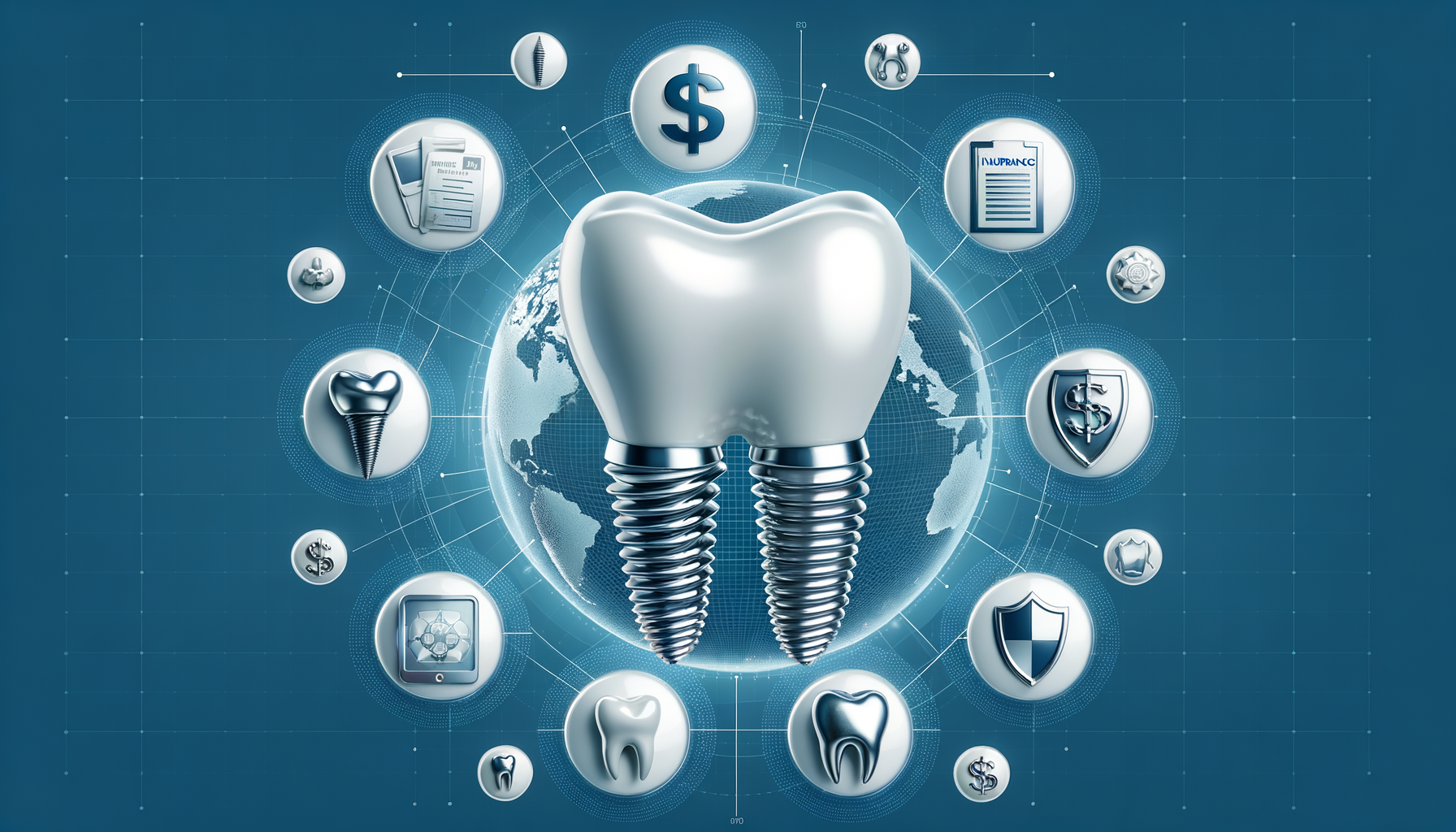Understanding Dental Implants: A Comprehensive Overview
Dental implants have revolutionized the way we approach tooth loss, offering a durable and aesthetically pleasing solution. Essentially, a dental implant is a titanium post that is surgically placed into the jawbone beneath the gum line. This allows your dentist to mount replacement teeth or a bridge into that area. Dental implants integrate with your jawbone, providing stable support for artificial teeth. Dentures and bridges mounted to implants won’t slip or shift in your mouth—an especially important benefit when eating and speaking.
For many, dental implants offer a welcome alternative to dentures or bridgework that doesn’t fit well. They also offer an option when a lack of natural teeth roots don’t allow building denture or bridgework tooth replacements. However, not everyone is a candidate for dental implants. The ideal candidate is someone who has healthy gums and enough bone to hold the implant. A commitment to keeping these structures healthy is crucial. Regular dental visits and meticulous oral hygiene are essential to the long-term success of dental implants.
The primary advantage of dental implants is their permanence and the natural look and feel they provide. Unlike dentures, which can be uncomfortable and require regular maintenance, implants are a long-term solution that can last a lifetime with proper care. This makes them a highly valued option for many individuals seeking a permanent solution to tooth loss.
The Cost of Dental Implants: What to Expect
Understanding the cost associated with dental implants is crucial for anyone considering this procedure. In the United States, the cost of a single dental implant can range from $1,000 to $5,000. This price can vary based on several factors, including the specific type of implant, the expertise of the dentist, and the geographical location of the clinic. The materials used, the number of teeth that need to be replaced, and the preparatory procedures required also influence the overall expense.
It’s important to note that while dental implants might seem expensive upfront, they are often a cost-effective solution in the long run. Unlike other dental solutions that may need to be replaced or repaired periodically, implants are designed to last many years, potentially a lifetime. This longevity can make them a worthwhile investment for those seeking a permanent fix to tooth loss.
When considering the cost, it’s also beneficial to explore financing options that many dental clinics offer. Payment plans, dental insurance coverage, and health savings accounts can all help manage the financial aspect of getting dental implants. Patients should discuss these options with their dental provider to determine the best way to afford their treatment.
Insurance Coverage for Dental Implants: Navigating Your Options
Insurance coverage for dental implants can be complex, as not all policies cover this type of procedure. Traditionally, dental insurance plans have focused on preventive care and basic procedures, while more extensive treatments like implants may not be fully covered. However, the landscape is changing, and some insurance companies are beginning to recognize the long-term benefits of dental implants.
Patients should start by reviewing their dental insurance policy to understand what, if any, coverage is available for implants. Some plans may cover a portion of the procedure, particularly if it is deemed medically necessary. For instance, if tooth loss is affecting a patient’s ability to chew properly or causing other health issues, there may be a stronger case for coverage.
It’s also worth exploring supplemental dental insurance plans, which can offer more comprehensive coverage for procedures like implants. Additionally, some health insurance plans might cover certain aspects of the procedure, especially if it involves surgery or is related to a medical condition. Patients are encouraged to speak with their insurance provider and their dental office’s billing department to navigate these options effectively.
Choosing the Right Dental Implant Clinic: Key Considerations
Selecting the right clinic for dental implants is a critical step in ensuring a successful outcome. Patients should begin by researching clinics in their area and evaluating them based on several important criteria. One of the first considerations should be the qualifications and experience of the dental professionals. Look for clinics with board-certified specialists who have extensive experience in implant dentistry.
Another factor to consider is the clinic’s reputation. Online reviews, patient testimonials, and word-of-mouth recommendations can provide valuable insights into the quality of care you can expect. It’s also beneficial to visit the clinic in person, if possible, to assess the facilities and meet the staff. A welcoming and professional environment can make a significant difference in your overall experience.
Lastly, consider the technology and techniques used by the clinic. Modern dental implant procedures often utilize advanced imaging and surgical techniques to ensure precision and success. A clinic that invests in the latest technology is likely committed to providing high-quality care. By taking the time to thoroughly evaluate your options, you can choose a clinic that meets your needs and ensures a positive outcome.
Aftercare and Maintenance of Dental Implants
Once your dental implants are in place, proper aftercare and maintenance are essential to ensure their longevity and effectiveness. Immediately following the procedure, patients should follow their dentist’s instructions carefully to promote healing and avoid complications. This may include taking prescribed medications, avoiding certain foods, and maintaining excellent oral hygiene.
In the long term, maintaining dental implants requires the same level of care as natural teeth. Regular brushing and flossing are crucial to prevent plaque buildup and gum disease, which can compromise the implant. Additionally, routine dental check-ups are important to monitor the health of the implant and surrounding tissues. These visits allow the dentist to address any potential issues early on, ensuring the continued success of the implant.
It’s also important for patients to avoid habits that could damage their implants, such as chewing on hard objects or using tobacco products. By committing to a comprehensive care routine, patients can enjoy the benefits of their dental implants for many years to come.



Leave a Reply